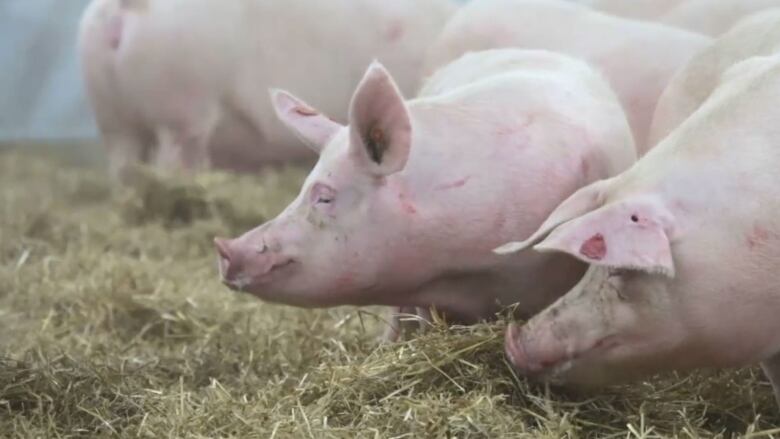Pigs puff out greenhouse gases, but could better diets help?
University of Saskatchewan study will look at modifying carbon footprint of swine

Pigs pass gas and when they do, greenhouse gases like methane are produced.
Scientists believe such gases are contributing to global warming and are looking at ways to reduce them.
That's where researchers at the University of Saskatchewan's school of agriculture come in. They're using a $241,000 grant from Saskatchewan's federal-provincial Agriculture Development Fund to study the problem.
A project led by Denise Beaulieu, an assistant professor in the Animal and Poultry Science Department, will seek to determine if improving nutrient digestibility with dietary enzymes reduces the carbon footprint of pork production.
It will look at the cost benefits of alternate ingredients in pork production when environmental impact is considered and how to optimize pig diets to minimize greenhouse gas emissions.
The swine-greenhouse gas study is one of 24 research projects receiving a total of $3.5 million that were announced on Wednesday.
Other projects include research into the prevention of bovine respiratory disease, the effect of ergot-contaminated feed on bull fertility and the effect of long transport trips on the welfare of piglets.
Backgrounder: Livestock and Forage Research Grants (PDF KB)
Backgrounder: Livestock and Forage Research Grants (Text KB)CBC is not responsible for 3rd party content












_(720p).jpg)


 OFFICIAL HD MUSIC VIDEO.jpg)
.jpg)



























































































